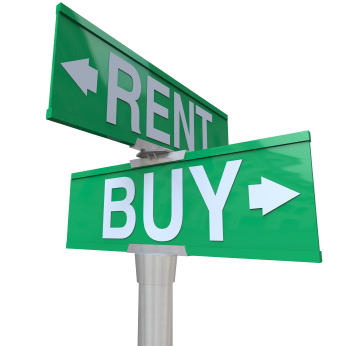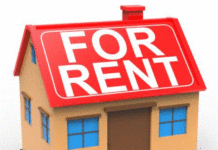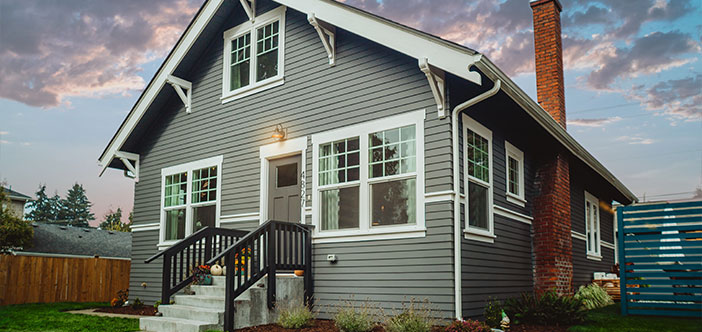Ah. The age old question of renting vs buying. Few things can set off such a spirited debate as much as financial experts tackling this question. When it comes to living somewhere, the vast majority of us will choose to live in a home. This means we will either be renting from someone else who already owns a home we like, or buying our own. Unfortunately, there is no clear cut answer to the question of if it’s better to rent or own, so allow me to present a few factors to consider when deciding what’s best for you.
RENTING
Pros:
Overall, and depending on the market cycle and location in the country, renting is typically the cheaper option. Now when I say cheaper, please understand this refers only to the money one spends on housing costs, not one’s overall net worth.
- Home maintenance. Renters don’t need to fix most major malfunctions that come with home ownership. Water heaters, furnaces, AC units, roof leaks, etc. These can be big and unexpected costs for home owners and can affect affordability significantly. Renting a home can be a great way to enjoy the benefits of a house while not having to pay for major repairs.
- Rent is usually cheaper than a mortgage. Now again, please understand different areas in the country have different home prices, and different parts in the market cycle lend to different mortgage amounts. With this being said, rents are traditionally cheaper than mortgages on their face.
- Flexibility. Renters can move whenever their lease is up (and sometimes earlier than that if the owner agrees). Homeowners usually need to either sell their home, or rent it to someone else before they can up and leave. Renters have much more flexibility and freedom than this, and for this reason renting becomes a much more attractive option to many.
Cons:
- Contracts. A rental agreement is a contract. It spells out exactly what the tenant can and cannot do. Want to paint the wall a different color, knock down a wall to open up the kitchen, or put up a wall to add another bedroom? Change the tile in the bathroom? Add a trampoline or pool to the backyard? Too bad. Unless the home owner agrees to this, a renter just doesn’t have that kind of freedom.
- Lack of equity build up. A homeowner makes a house payment, and a portion of that money goes to pay off the loan taken to buy the home. A renter cannot say the same thing. The rent goes right to the landlord with nothing given back in return. When you are renting, you are most likely paying off someone else’s mortgage, not your own.
- Rising home prices make it harder to buy a home for renters, and don’t help them out in any other way. When you own a home, rising home prices (whether due to inflation, a hot market, new jobs moving in, etc) can lead to big growth in home equity. If you’re a renter, not so much. You don’t benefit from anything, and the home owner may decide to sell the home you’re living in (yes this happens, and is legal). The new home owner has to agree to honor the terms of your lease, but when that lease is up, they are under no obligation to give you the same perks the old owner did.
- Rising rents. Typically, rents in this country go one direction-up. Most tenants can count on their rent either going up or staying the same at best. Mortgages will usually always stay the same, even as inflation does it’s thing.
OWNING
Pros:
- Rising rents don’t hurt you. No matter what rents, home prices, or inflation does, your mortgage payment will stay the same. This can be a comforting fact in an uncertain economy.
- Freedom to do what you want with your home. While some homes belong to HOA’s or have CC&R’s restricting what can be done to the exterior and landscaping of a home, you still have way more freedom to modify your home than you do as a renter. Adding square footage, adjusting the lay out of your home, changing the paint scheme, all things a home owner can do that the typical renter cannot.
- Equity build up. As your home loan is slowly paid down, and your home’s value goes up, you start to create equity. This equity can be realized when you sell the home, or tapped into through an equity line of credit. If you buy wisely, a home can be a great tool in helping you to build wealth.
- Leverage. Most people use a loan to buy a home. This means you’re buying a home with someone else’s money. In today’s economy, interest rate’s are near all time lows. This makes borrowing someone else’s money much cheaper than it traditionally is, and homes more affordable than they normally would be at today’s prices.
Cons:
- Property taxes and home owners insurance. When you own a home, you must pay the property taxes on it. These can be paid twice throughout the year, or collected with your monthly payment through an impound account and paid by the mortgage holder. Home owners insurance can work the same way. Remember, when you’re buying a home, it’s not just the mortgage payment you need to make. There are other costs as well.
- Maintenance. Big ticket items needing repair can be quite expensive. Leaky roofs, mildew in bathrooms, appliances breaking-all can be expensive repairs. When you own the home, you own the responsibility as well.
- Lack of freedom to move. When you get a new job, have a new baby, or decide you just want a change, moving isn’t an easy and packing up and moving on. With your own home, you’ll likely have to sell it before you can leave. This can take several months to complete, or can be almost impossible if you are underwater on your mortgage without the cash to pay off the loan at closing. Owning a home is not only a big responsibility, it also has a big impact on the rest of your life.
- Credit. Getting a home loan requires you to have a strong enough credit history that a bank feels confident giving you the loan. Standards are typically higher for a bank to lend money to a home buyer than for a landlord to lend money to a tenant.
When evaluating whether buying or renting is right for you, it all comes down to what direction you want your life to take. If you’re looking to keep your options open, not be tied down to a mortgage, and be able to move without worrying about where in the market cycle you are, renting is a better life choice for you. If you’re looking to hang on for the long term, live somewhere for a long period of time, and use the equity in your house for investing, home buying is a smarter option. Deciding questions like this is the first step in making your decision.
So there you have it. The major pro’s and cons of buying vs renting. Ask yourself what is most important to you and what your major goals are for the foreseeable future.
If you have any questions about how to determine what’s best for you, or questions relating to real estate in general, please email me at:
DavidGreene@KW.com












